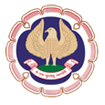TRIBUNAL DECISIONS
Mere discrepancy found in Form 26AS & Form no.16 does not amount to concealment Chalapati Katiki v. ITO (ITAT Hyderabad) [Appeal No.: ITA No.1865/Hyd/2017, Date of Order: 09/01/2019, Assessment Year: 2011-12]
On perusal paper book filed before the Hon.Tribunal, the ITAT has opined that with regard to salary, there is a difference between amounts as per Form No.16 and Form No.26AS, since both are provided by the SBH, Hyderabad (employer) and the assessee has filed his return of income in accordance with Form No.16 issued by the employer of the assessee, by taking into account the amount mentioned in Form 26AS it cannot be said that the assessee has concealed amount or furnished inaccurate particulars of income.
With regard to commission income of Rs.3,56,508/-, the assessee had not disclosed the same in his Return of income and also not offered any explanation. In view of the above, the Tribunal held that the A.O. can initiate penalty only for the amount of commission which was not disclosed, can fall within the ambit of ‘concealment of income’. The Tribunal also directed the A.O. to restrict the penalty to the tax sought to be evaded on the amount of commission i.e., Rs.3,56,508/-. Therefore, grounds raised by the assessee are partly allowed.
Penalty cannot be levied if addition itself was debatable: M/s Google India Pvt.Ltd. Vs ACIT (ITAT Bangalore) [Appeal No.: ITA No.362/Bang/2013, Date of Order: 06/09/2019, Assessment Year: 2008-09)
It is pertinent to observe that while passing Assessment Order, the Ld. Assessing Officer (AO) initiated penalty proceedings without referring to any charge as to for “concealment of income” or “filing of inaccurate particulars of income”. Further, the Ld. AO subsequent to Order passed by the Ld. CIT (A), passes Penalty Order, wherein penalty has been levied for deliberateness of “tax evasion”, which, is not at all the requirement of section 271(1)(c ) of the IT Act, as per the considered opinion of the Hon.ITAT.
Be that as it may, it is observed that Hon’ble High Court, for year under consideration, admitted substantial questions of law by which addition itself becomes debatable. On perusal of decision relied upon by the Ld. AR in the case of CIT vs Ankita Electronics Pvt. Ltd. and CIT vs Dr. Hirsha N. Biliangady, additions in respect of which penalty was confirmed has been accepted by Hon’ble Karnataka High Court, leading to substantial question of law. Thus, when the Hon’ble High Court admitted substantial question of law on additions, it becomes apparent that issue is certainly debatable. In such circumstances, penalty cannot be levied under section 271 (1) (c) of the Act.
 WIRC
Western India Regional Council
WIRC
Western India Regional Council
 WIRC
Western India Regional Council
WIRC
Western India Regional Council